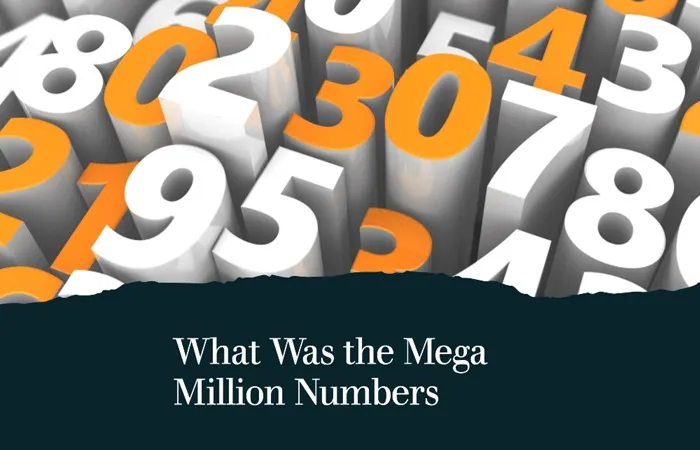Winning the Mega Millions jackpot is a dream come true for many. However, the excitement can quickly turn to confusion when it’s time to claim the prize, especially regarding taxes. This article will break down the process, helping you understand how much of the jackpot you actually take home after taxes.
The Mega Millions Prize Options
When you win the Mega Millions jackpot, you have two payout options:
Annuity Option: This option provides the full jackpot amount, paid out in 30 annual installments over 29 years. Each payment increases by 5% from the previous year.
Cash Lump Sum Option: This is a one-time payment equal to the present cash value of the jackpot, which is typically about 46% of the advertised jackpot amount.
Federal Taxes on Mega Millions Winnings
Regardless of the payout option you choose, your winnings are subject to federal taxes. The Internal Revenue Service (IRS) automatically withholds 24% of lottery winnings for federal taxes. However, for large jackpots, this initial withholding is often insufficient, as it may not cover the total tax liability. Winners may find themselves in the highest federal tax bracket of 37%, meaning they could owe additional taxes when filing their returns.
Example Calculation:
Jackpot Amount: $825 million
Cash Lump Sum (46%): $379.5 million
Initial Federal Withholding (24%): $91.08 million
Remaining Federal Tax Liability (13%): $49.34 million
Total Federal Taxes Owed: $140.42 million
Amount After Federal Taxes: $239.08 million
Note: These figures are approximate and can vary based on individual circumstances.
State Taxes on Mega Millions Winnings
State taxes vary and can significantly impact your take-home amount. Some states do not tax lottery winnings, while others have substantial tax rates. Here’s a breakdown:
States with No State Tax on Lottery Winnings:
California
Florida
New Hampshire
South Dakota
Tennessee
Texas
Washington
Wyoming
States with Notable Tax Rates:
New York:
State Tax Rate: 8.82%
Total Tax (Federal + State): Approximately 45.82%
Amount After Taxes: Approximately $186.47 million
Maryland:
State Tax Rate: 8.75%
Total Tax (Federal + State): Approximately 45.75%
Amount After Taxes: Approximately $186.33 million
New Jersey:
State Tax Rate: 8%
Total Tax (Federal + State): Approximately 45%
Amount After Taxes: Approximately $208.25 million
Note: These figures are estimates and can vary based on individual circumstances.
Recent Mega Millions Jackpot Examples
To illustrate how taxes affect winnings, let’s look at some recent Mega Millions jackpots:
$1.2 Billion Jackpot (December 2024):
Winner: Rosemary Casarotti from California
Payout Option: Lump Sum
Gross Amount: $571 million
Federal Taxes Withheld (24%): $137.04 million
Amount After Federal Taxes: $433.96 million
State Taxes: None (California does not tax lottery winnings)
Total Taxes Paid: Approximately $137.04 million
$344 Million Jackpot (March 2025):
Winner: Anonymous (Illinois)
Payout Option: Lump Sum
Gross Amount: $159.1 million
Federal Taxes Withheld (24%): $38.18 million
Amount After Federal Taxes: $120.92 million
State Taxes (Illinois 4.95%): $7.88 million
Total Taxes Paid: Approximately $46.06 million
Amount After All Taxes: Approximately $113.04 million
Note: These figures are based on available information and may vary based on individual circumstances.
Strategies to Maximize Your Winnings
If you find yourself holding a winning ticket, consider the following strategies to maximize your after-tax winnings:
Consult Financial Advisors: Engage with tax professionals and financial planners to understand the best course of action based on your personal financial situation.
Consider Annuity vs. Lump Sum: Evaluate the benefits and drawbacks of each payout option. Annuities provide a steady income stream but may result in higher total taxes over time. Lump sums offer immediate access to funds but come with substantial immediate tax liabilities.
State Residency Matters: Where you live affects how much you pay in state taxes. If you win the lottery in a state that taxes lottery winnings, it might be worth consulting with a tax advisor about potential residency changes to minimize state tax liability.
Gift Taxes: Winners often want to share their prize with family or friends. Be aware of potential gift taxes. In the U.S., you can give up to $17,000 per person per year without incurring gift taxes. Anything above that amount could be taxed at the gift tax rate.
Charitable Donations: Donating part of your winnings to charity can reduce your taxable income. If you’re passionate about a cause, it’s worth considering charitable contributions as part of your strategy to reduce tax liability. However, ensure that donations are to qualified charitable organizations.
Why Is Understanding Taxes So Important?
Understanding how much you’ll actually take home after taxes is critical for several reasons. First, it helps you plan for the future. Winning a massive jackpot can be overwhelming, and managing that wealth requires careful planning. Second, it prevents surprises. Many winners are shocked when they realize just how much of their winnings are taken by taxes. Knowing the tax implications upfront allows you to make informed decisions and avoid any unpleasant surprises when it’s time to claim your prize.
Conclusion
Winning the Mega Millions jackpot is a life-changing event, but it’s important to remember that taxes will significantly reduce the amount you actually take home. Understanding the different tax implications, both federal and state, can help you make informed decisions about how to manage your newfound wealth.
Whether you choose the lump sum or annuity option, consulting with financial advisors and tax professionals will help you navigate the complexities of lottery winnings and ensure you keep as much of your prize as possible.
Be sure to stay informed about the tax landscape in your state, as it can make a big difference in your total payout. With careful planning and the right advice, you can make the most of your Mega Millions winnings and set yourself up for financial success for years to come.


